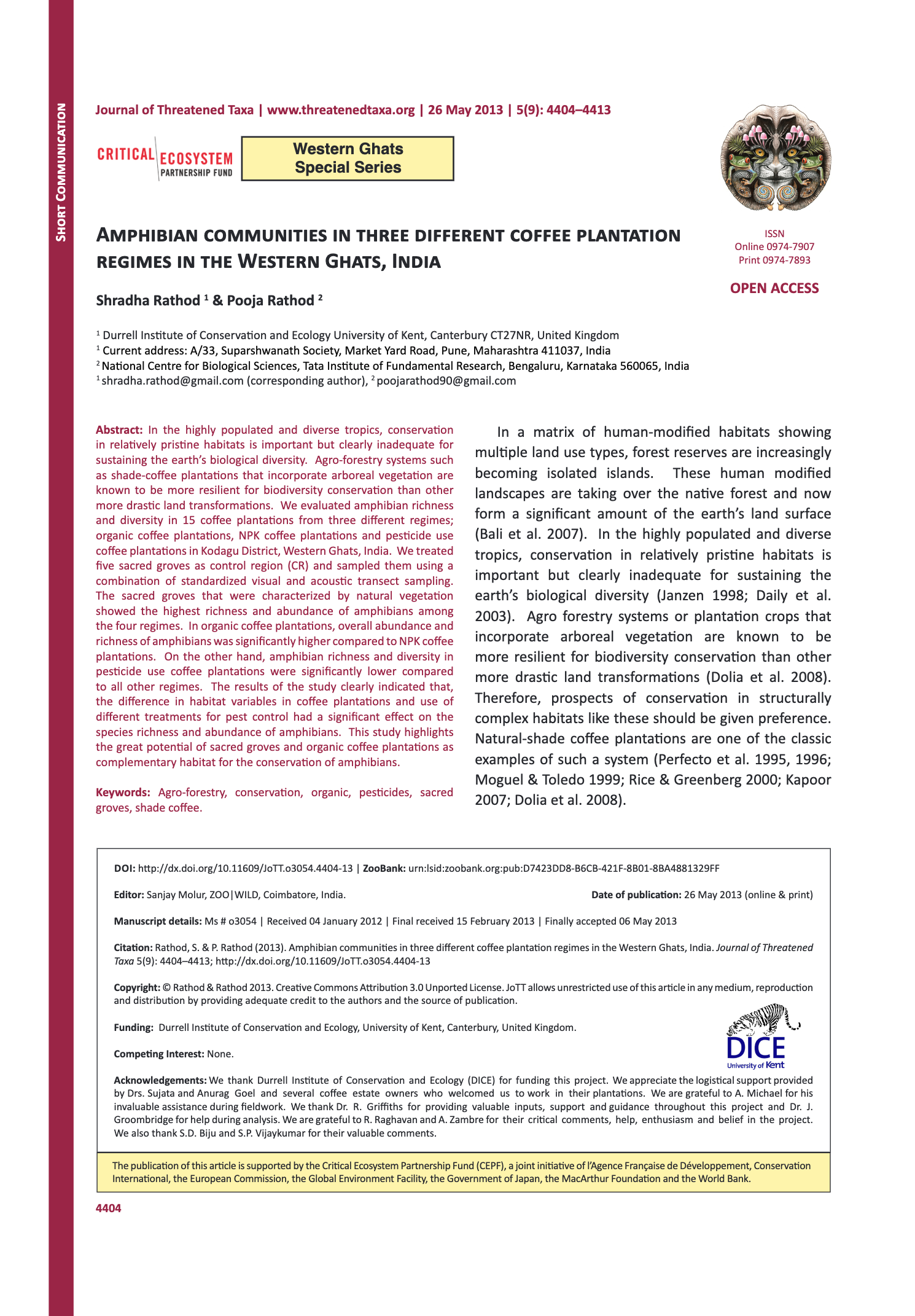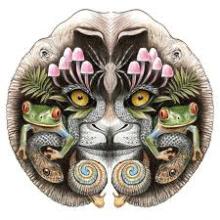Resource information
In the highly populated and diverse tropics, conservation in relatively pristine habitats is important but clearly inadequate for sustaining the earth biological diversity. Agro-forestry systems such as shade-coffee plantations that incorporate arboreal vegetation are known to be more resilient for biodiversity conservation than other more drastic land transformations. We evaluated amphibian richness and diversity in 15 coffee plantations from three different regimes; organic coffee plantations, NPK coffee plantations and pesticide use coffee plantations in Kodagu District, Western Ghats, India. We treated five sacred groves as control region (CR) and sampled them using a combination of standardized visual and acoustic transect sampling. The sacred groves that were characterized by natural vegetation showed the highest richness and abundance of amphibians among the four regimes. In organic coffee plantations, overall abundance and richness of amphibians was significantly higher compared to NPK coffee plantations. On the other hand, amphibian richness and diversity in pesticide use coffee plantations were significantly lower compared to all other regimes. The results of the study clearly indicated that, the difference in habitat variables in coffee plantations and use of different treatments for pest control had a significant effect on the species richness and abundance of amphibians. This study highlights the great potential of sacred groves and organic coffee plantations as complementary habitat for the conservation of amphibians.



